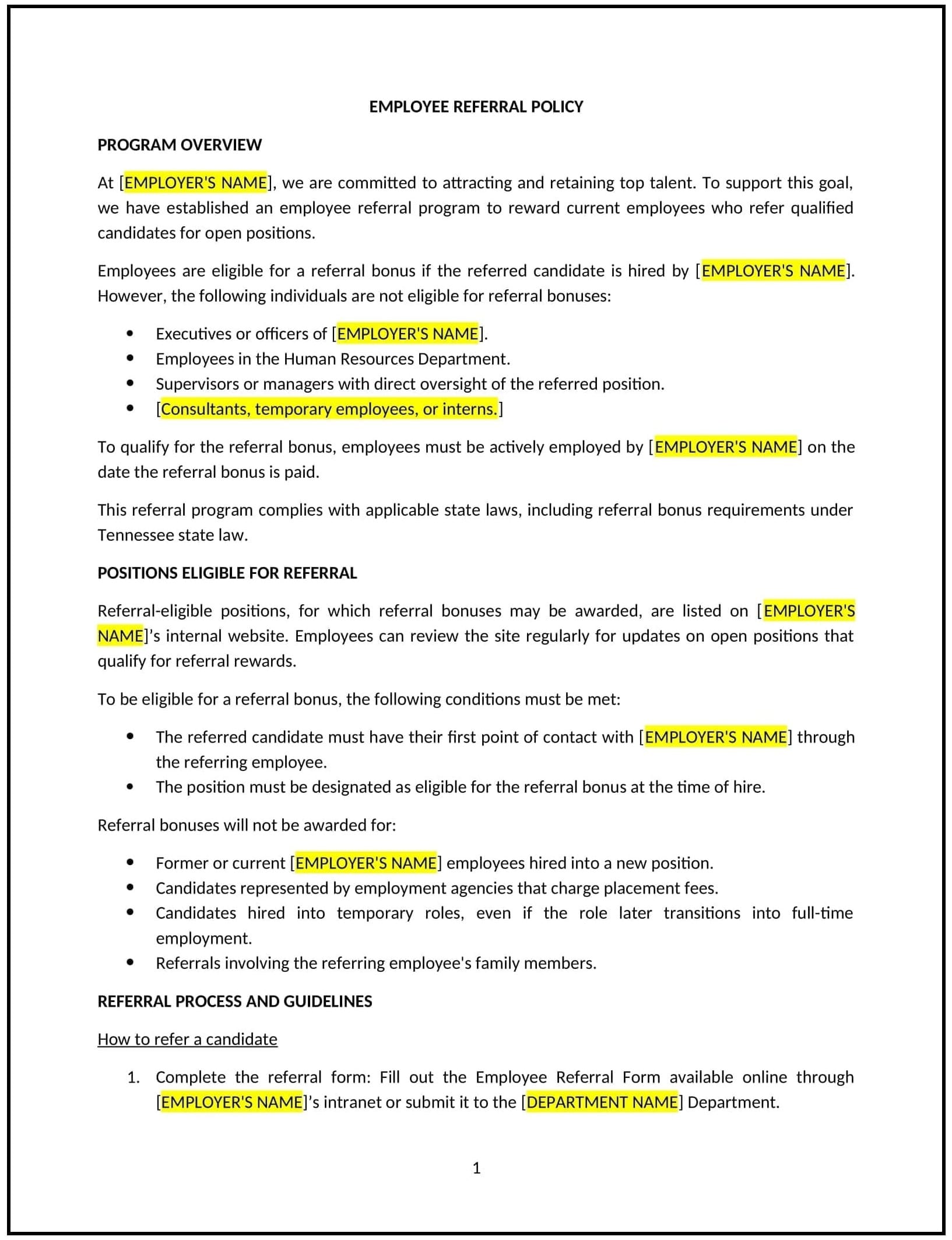Employee referral policy (Tennessee): Free template
Got contracts to review? While you're here for policies, let Cobrief make contract review effortless—start your free review now.

Customize this template for free
Employee referral policy (Tennessee)
This employee referral policy is designed to help Tennessee businesses establish guidelines for employees referring qualified candidates for open positions. It outlines procedures for submitting referrals, eligibility criteria, and referral rewards.
By adopting this policy, businesses can attract high-quality candidates, reduce recruitment costs, and leverage their employees’ networks.
How to use this employee referral policy (Tennessee)
- Define referral process: Specify how employees can submit referrals, such as through an online portal or HR department.
- Set eligibility criteria: Outline requirements for referred candidates, such as qualifications and experience.
- Establish reward structure: Explain the incentives for successful referrals, such as cash bonuses or gift cards.
- Address confidentiality: Ensure referred candidates’ information is handled confidentially.
- Train employees: Educate staff on the referral process and eligibility requirements.
- Review and update: Assess the policy annually to ensure it aligns with evolving business needs and recruitment goals.
Benefits of using this employee referral policy (Tennessee)
This policy offers several advantages for Tennessee businesses:
- Attracts high-quality candidates: Leverages employees’ networks to find qualified applicants.
- Reduces recruitment costs: Minimizes expenses associated with external hiring efforts.
- Enhances employee engagement: Encourages employees to participate in the hiring process.
- Speeds up hiring: Shortens the time-to-hire by tapping into pre-vetted candidates.
- Aligns with best practices: Supports a structured approach to employee referrals.
Tips for using this employee referral policy (Tennessee)
- Communicate the policy: Share the policy with employees and include it in the employee handbook.
- Provide training: Educate staff on the referral process and eligibility requirements.
- Monitor compliance: Regularly review referral submissions and rewards to ensure adherence.
- Address issues promptly: Take corrective action if referrals are mishandled or rewards are delayed.
- Update regularly: Assess the policy annually to ensure it aligns with evolving business needs.